Why Married Men Rely on Everyone But Themselves for Emotional Labor
How Emotional Labor Gets Outsourced to Wives and Then to Their Friends
The Tweet That Started It: When Emotional Labor Hits Too Close to Home
When married men rely on their wives and their wives’ friends for emotional support, the cost is silence, burnout, and imbalance.
It started with a tweet. I was frustrated, typing from lived experience—mine, and the stories I’ve absorbed from other women. Within hours, the post had over 476,000 views. Not because it was controversial, but because it was familiar.
What I named about emotional labor, marriage, and friendship—hit a nerve. Hundreds of comments, messages, and conversations poured in. Women saw themselves in it. So did I.
The Hidden Cost of Being the ‘Supportive Friend’
Because I’ve been there: the friend expected to “hold space” while someone vents about a husband who won’t listen. The friend who receives long texts, urgent calls, emotional dumps—none of which are really about me, but all of which demand me. The friend made into the fallback therapist when the man in the house refuses to show up emotionally.
It’s one thing to hold your people. It’s another thing to be used as the emotional plug-in for someone else’s unequal relationship.
This isn’t just emotional labor it’s emotional outsourcing. And it happens more than we admit.
When ‘Community’ Means Unpaid Labor for Women
I’ve lost count of how many times I’ve heard the word “community” used to excuse what is, in truth, an unequal emotional arrangement.
It usually sounds like: “I just need someone to talk to. You’re such a grounding presence.”
And suddenly, I’m not just a friend—I’m the backup wife. The emotional extension cord. The uncredited support system in someone else’s marriage.
This is what happens when people treat emotional labor like a shared resource only when men refuse to do their share. Married women often carry the emotional weight their partners won’t hold—then pass that burden to their single friends under the name of sisterhood. It’s called community, but it feels like unpaid work.
We don’t talk enough about how friendship boundaries erode in these dynamics. The line between care and codependence gets blurred when we’re told that being a good friend means absorbing someone else’s exhaustion—without context, without consent, and without reciprocity.
This isn’t “just venting.” It’s a transfer of responsibility. It’s how patriarchal systems survive—by stretching the labor of women until it reaches everyone but the man it’s supposed to come from.
The Emotional Toll of Intersectionality: Black Women, Disability, and Survival Work
For some of us, the weight of emotional labor isn’t just heavy—it’s generational, racialized, and baked into how others see us.
I’ve been in spaces where I wasn’t just expected to listen—I was expected to understand, absorb, and respond with grace. Not because I had capacity, but because I’m Black. Because I’m disabled. Because I’m assumed to be strong enough to carry it all.
That’s how intersectionality works. It doesn’t just shape how we’re seen—it shapes what’s demanded of us.
The “strong Black woman” trope isn’t a compliment. It’s a strategy society uses to keep us silent while piling on more weight. We’re expected to be therapists, organizers, crisis managers—even to people who never ask how we’re doing.
The same goes for disabled women, who are often viewed through a lens of dependency—while being relied on for emotional labor others won’t name. There’s an unspoken expectation that we’ll overextend ourselves because we’re already seen as grateful for connection.
And because these overlapping identities make us “resilient,” people rarely pause to consider the cost. They talk about our strength, but never our softness. They seek our wisdom, but rarely offer us rest.
These are not personal dynamics. They are structural expectations, reinforced by stories, media, and cultural norms that celebrate our endurance while exploiting it.
How to Stop Normalizing Emotional Imbalance in Relationships
I’ve seen what emotional imbalance looks like up close. It’s a woman sitting across from me, saying, “He just doesn’t listen, but you always do.” And in that moment, I become the stand-in—not just for support, but for everything he refuses to be.
If we are serious about building relationships rooted in equity, then we need to ask harder questions:
Why are so many men still excused from developing emotional intelligence—even in the relationships they chose?
We treat emotional labor like a gendered skill. But it’s not.
It’s a choice, a practice. And it’s one that far too many heterosexual men are never pushed to develop—because society doesn’t ask them to.
In my experience, it’s been queer men who’ve shown me what emotionally safe support looks like. They know what it’s like to be misunderstood, dismissed, or made invisible—and that knowledge becomes empathy. They ask instead of assume. They hold space without extraction. They sit with discomfort without fleeing.
That’s the kind of support I want in community.
Because emotional intelligence isn’t a gift women are born with. It’s a skill anyone can cultivate—if they’re willing to stop using others as emotional prosthetics.
If men are capable of deep logic, strategic thinking, and leadership—as we’re often told—then they are absolutely capable of emotional self-responsibility.
They just have to want to learn. And the rest of us have to stop doing the work for them.
The Emotional Domino Effect: When Wives Offload on Their Friends
I’ve been the fallback. The one they call after he tunes out.
“I just needed someone to talk to,” they say.
But I’m not just someone—I’m the emotional support team behind the emotional support team. The quiet friend turned first responder. The uncredited anchor for a relationship I’m not even in. Sometimes it feels like I’m the emotional side chick—present for all the parts he refuses to carry.
And it happens more than we admit.
Too often, women in relationships end up leaning on their single friends—especially other women—to fill the emotional voids their partners leave behind. Over time, those friendships stop feeling like care and start feeling like unpaid labor.
When emotional needs go unmet in a relationship, they don’t disappear. They get rerouted. They spill into every space labeled as “safe.” And we’re told it’s love. We’re told it’s sisterhood. But what it really is… is outsourcing.
If your partner’s absence becomes the reason you lean so heavily on your friends, that’s not just a red flag for your relationship. It’s a warning about how community gets misused.
This isn’t about refusing to support one another. It’s about recognizing the pattern.
In so many heterosexual relationships, the script goes like this:
He leans on you.
You lean on us.
But who do we get to lean on?
And somehow—he’s still the only one in the chain who’s never asked to stretch. Never asked to show up. Never asked to carry what he dropped.
That’s not just a relationship problem. That’s a community one.
What My Mother Taught Me About Generational Emotional Labor
This didn’t start with my friends.
I grew up watching it play out in real time—my mother carrying everything. Not just the household, not just the children, but the emotional well-being of a grown man who’d learned how to expect support without offering it.
We weren’t just her kids. We were also part of the emotional system keeping him afloat. She didn’t mean harm. She meant survival.
But survival came with a price. It meant raising children who were also raising the household. Who learned—quietly and early—that to be loved was to be useful.
That’s where I first saw how deep the gendering of emotional labor runs. How women are taught to mother men, to manage their moods, to fix what they never broke.
And years later, it shows up again—but this time in friendships.
I’ve seen how some women stay in relationships that drain them and then turn to their friends—mostly other women—to recover. To release. To stabilize.
Some friendships survive this.
They’re the ones where romance doesn’t take priority over reciprocity. Where emotional labor doesn’t trickle down from partner to wife to friend without accountability.
But others? They collapse. Not from betrayal, but from burnout.
I’ve had too many conversations with friends who married men that center themselves at all times—while their wives bleed out emotionally. And when those women call, it’s not just to share. It’s to offload. To repeat the cycle. To make their friendships carry what their relationships won’t hold.
And it always leaves me asking:
If your marriage uses our friendship to grow—what does your marriage give back to the friendship?
Because love should feed more than one relationship. Not drain every room it walks into.
Clearing Cycles of Learned Helplessness: Friendships That Expect Too Much
In 2023, I stopped answering certain calls.
Not because I didn’t care—but because every time my phone lit up, I could feel my chest tighten. I knew I’d be asked to hold someone up again. To absorb, affirm, and anchor them. To fix something they refused to fix for themselves.
That was the year I started clearing friendships with women who mistook my presence for permanence—women who used our bond to stay in relationships they had no intention of leaving, relationships that drained them and, by extension, me.
They expected me to be their emotional safety net. To be there without question. To be available regardless of my own capacity, disability, grief, or silence.
And then, in 2025, something else shifted. The final boss, if you will: male friends.
The ones who called when their romantic lives were crumbling, but who never asked how I was doing. The ones who praised my insight but disappeared when I needed reciprocity.
Setting boundaries wasn’t a declaration of war—it was an act of alignment. I wasn’t rejecting them. I was choosing myself.
Because here’s the truth: learned helplessness isn’t an individual flaw. It’s a social design.
Women are taught to overextend. Men are taught to expect extension. And anyone who breaks the pattern gets labeled selfish. But if protecting my peace is selfish, so be it.
I’ve done the labor. I’ve offered the care. I’ve listened, held, affirmed, and stayed soft even when I was unraveling.
Now? I’m choosing friendships that know the difference between intimacy and dependency.
Between community and co-dependence. Between support and emotional extraction.
What Real Community Looks Like: Boundaries, Equity, and Shared Labor
True community isn’t about leaning on others without reflection. It’s about showing up in ways that are reciprocal, honest, and rooted in care—not expectation. It means recognizing that emotional labor cannot live on one person’s shoulders while others call it connection.
Ending these patterns isn’t just about setting better personal boundaries. It’s about imagining new possibilities for what relationships can be—grounded in equity, not endurance. Real community means shared emotional responsibility. And that demands more than good intentions. It requires unlearning: how we raise boys, how we reward detachment in men, and how we normalize imbalance in love and friendship.
If It Doesn’t Pour Into You—Let It Go
In this new chapter, I’m choosing to pour into what pours back. If that isn’t you, it’s adios, amiga. Community isn’t a transaction—but it isn’t martyrdom either. Mutuality matters. Boundaries and balance aren’t luxuries—they’re the structure that makes care sustainable.
If you’ve ever left a conversation feeling emptier than you entered it, know this: your worth isn’t measured by how much you endure. It’s reflected in how much you protect your energy, honor your limits, and refuse to be the well everyone drinks from without ever refilling.
The artwork featured in this article is by Naledi Modupi, whose vivid creations explore themes of identity, community, and emotional depth, perfectly complementing the discussion on the dynamics of emotional labor.
Who is Lovette Jallow?
Lovette Jallow is a 9 time award-winning author, speaker, and advocate specializing in neurodiversity, intersectionality, and human rights. As a Black autistic queer disabled woman, she has built one of Scandinavia’s largest separatist networks for Black women while championing equity and mutual care within marginalized communities. Lovette uses her platform to challenge societal norms, empower others, and redefine what authentic, inclusive communities look like.
Learn more about Lovette’s work at www.lovettejallow.com.





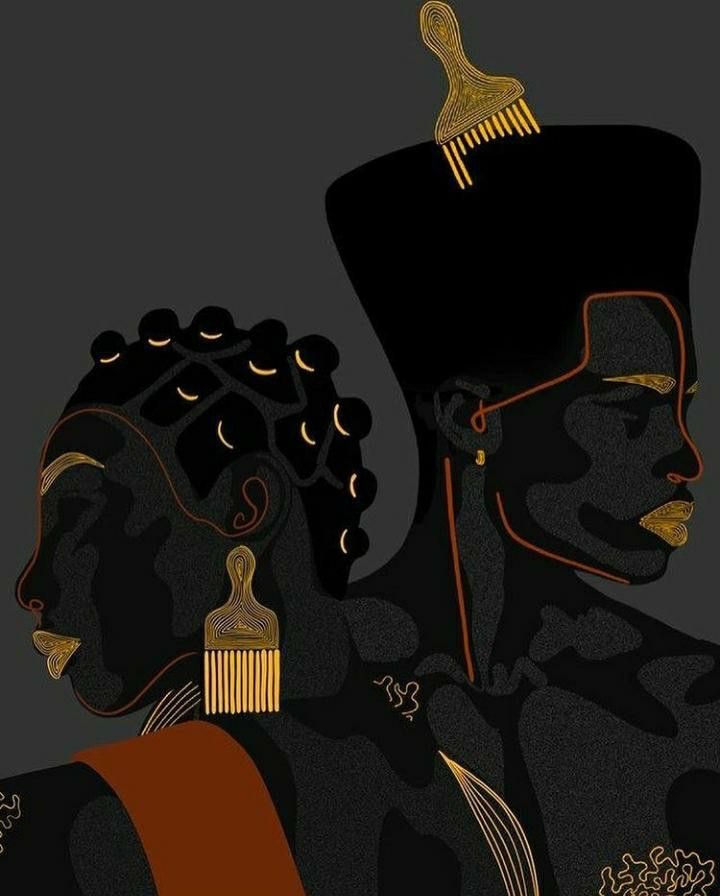
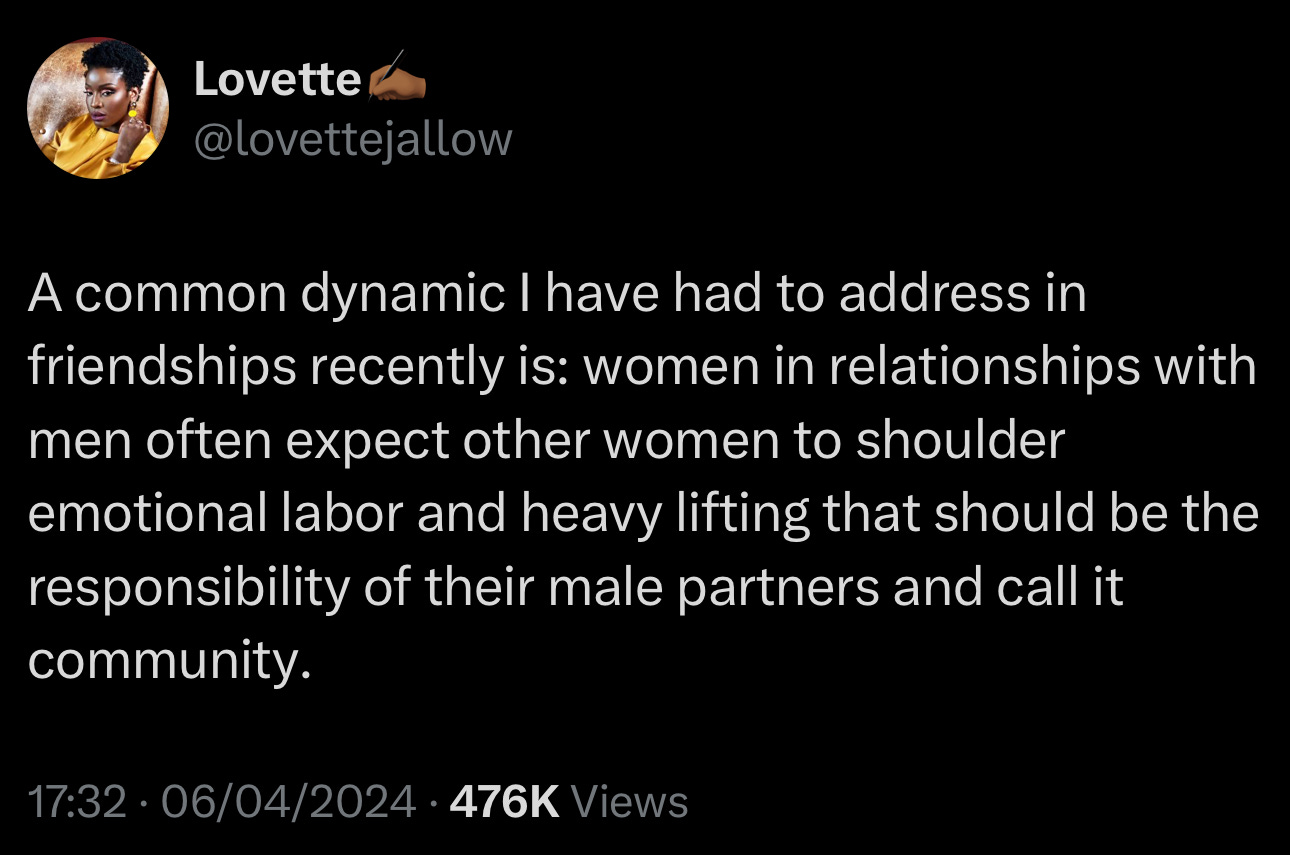


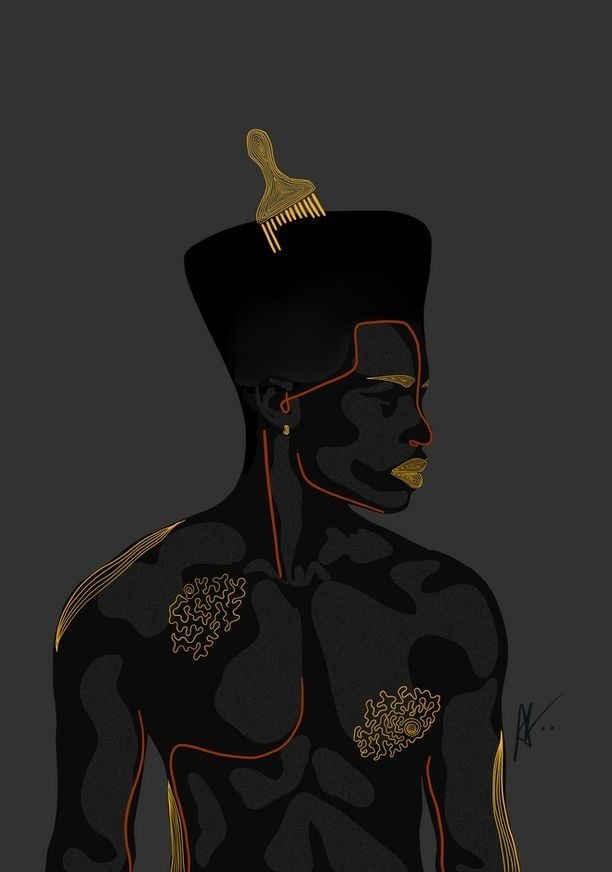
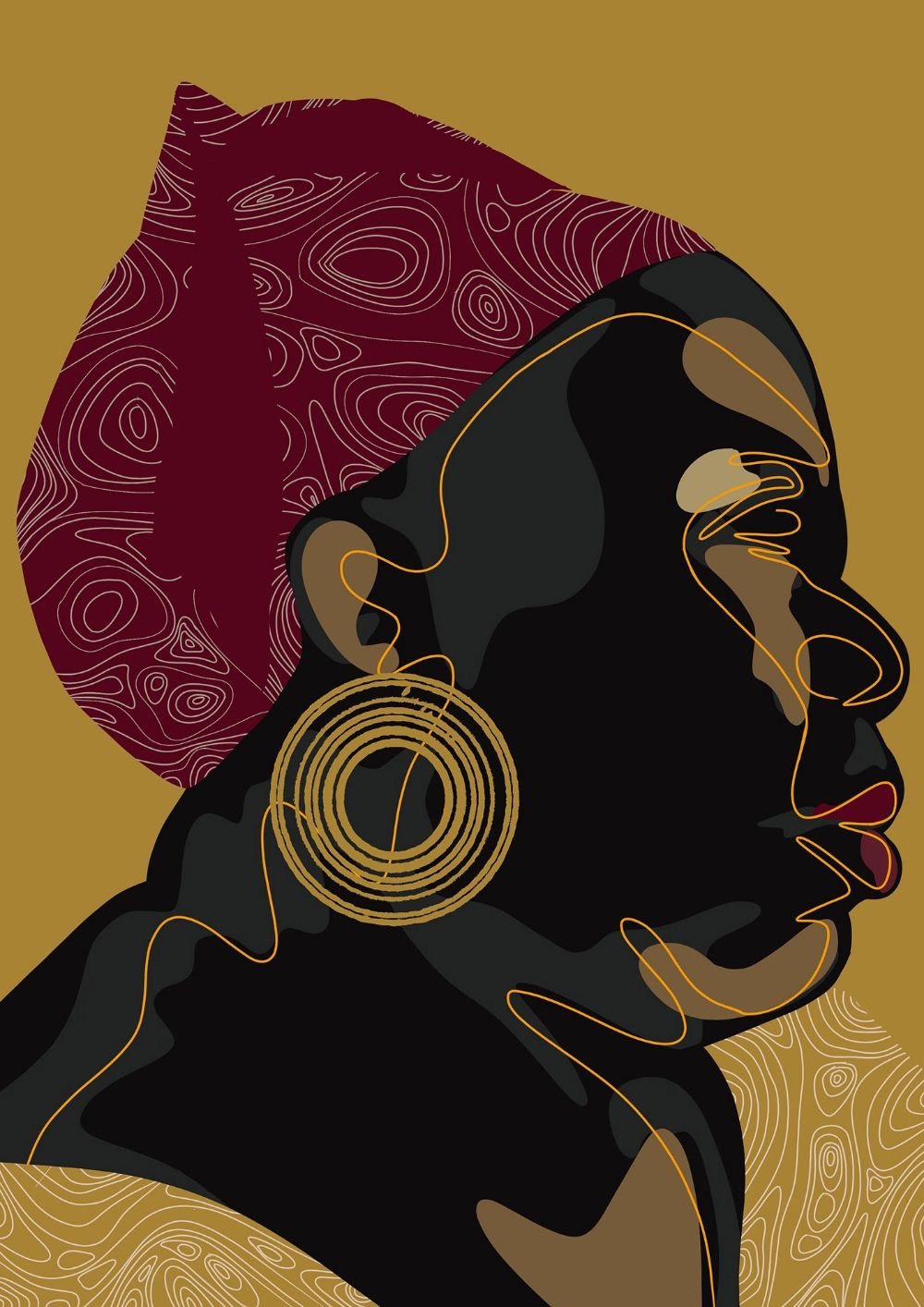

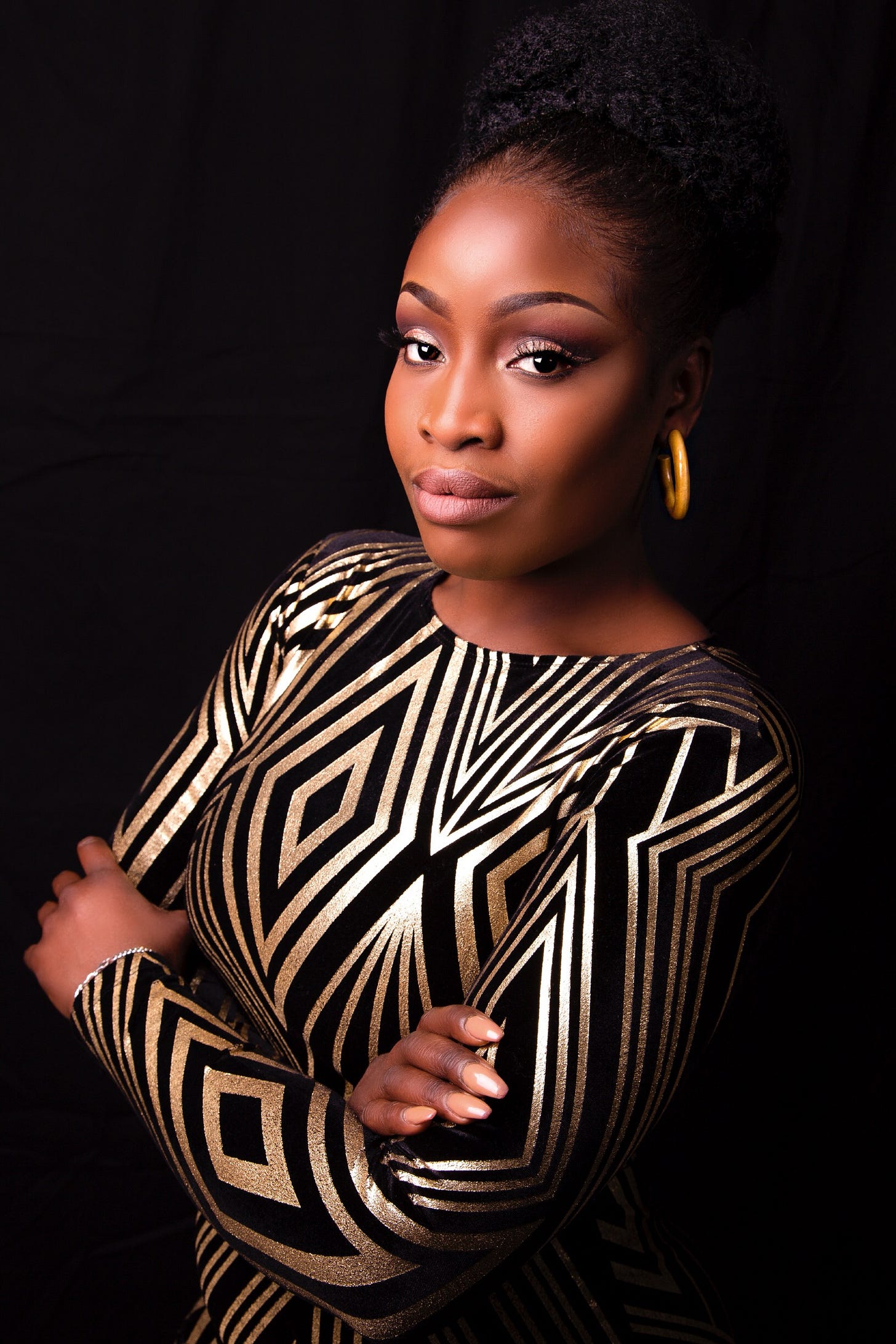
OOF. I really feel this so much. Both from the perspective of a (former) wife to a man who refused to do any emotional work and expected me to mother him (while being abused by him) and as the “good friend” who was always the listening ear. I also found myself being unpaid childcare for married women who saw my SAHM status as being constantly available to watch their kids (“play dates”) while they snatched some time for themselves and their husbands were off doing whatever (but not caring for their own kids). Patriarchy just has no boundaries whatsoever, it’s a social and emotional cancer that consumes everything it touches. I’m with you…freshly divorced with a YA child now I am making sure that the care flows both ways in my friendships now.
This is timely for me. I just lost a friend after I expressed to her that the dynamics of our relationship had pegion-holed me into the role of an emotional caretaker on matters to do with her marriage. I expected loss of the friendship to disable me emotionally for a while as has happened before when I lost another friend, but I am surprised how much better I feel emotionally.